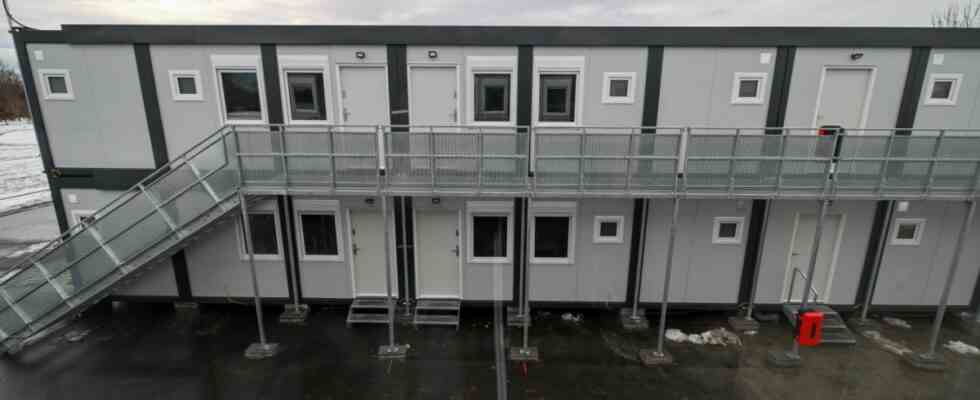The bad images of the earthquake in Turkey and Syria are currently dominating the news – and the catastrophe could also have an impact on Central Europe, Germany and Bavaria. Because it is by no means impossible that numerous survivors whose houses have been destroyed will set off and leave their homes. At least that’s what the CDU member of parliament and former refugee state secretary in North Rhine-Westphalia, Serap Güler, already suspected. In an interview with the Frankfurter Allgemeine Zeitung said the daughter of Turkish guest workers: “A new wave of refugees is possible after the earthquake.”
This could pose even greater difficulties for counties and municipalities. They have long pointed out that they are at the limit with the accommodation of refugees, even before the earth shook in Syria and Turkey. In the district of Munich, too, the number of refugees arriving has increased significantly in recent months. According to the district office, around 4,500 people are currently housed in state accommodation, and there are 39 large and emergency accommodations throughout the district. “In addition, the district office has almost 200 apartments or houses with space for one to 30 people. We have also rented a few hotels or guesthouses,” said the press office of the district office when asked by SZ.
In the past few months alone, four new accommodations have been created and some have already been occupied, namely in Neubiberg (maximum 432 people), Haar (44), Unterhaching (260) and Unterschleißheim (116). Further facilities are currently being set up: in Unterföhring (330 places), Kirchheim (200 places), Ottobrunn (210 places) and in Grünwald (116 places).
According to the district office, there are still places available. A bus with 50 refugees is expected again in the coming week, and these people can be accommodated. “How many places can really be occupied always depends on who comes to us, whether individuals or people in a family group,” explains district office spokeswoman Christine Spiegel. Not every space that is available on paper can always be occupied. Colleagues often have to move people from one accommodation to another or within the accommodation, for example to accommodate a family together.
Green politician Nina Hartmann, third mayor in Oberhaching and responsible for refugee care and integration at Caritas, confirms: “Things are currently very dynamic.” The fact is that the numbers continue to rise, not only from Ukraine, but also from the Middle East, says Ismaning’s mayor Alexander Greulich (SPD). “It will be reassigned, there is a need again.”
Many municipalities are already at the limit. One is “well full, centralized and decentralized,” says Greulich. Ismaning is now accommodating around 300 refugees, “that brings us to 200 percent of our allocation quota.” As long as there are free beds, it goes without saying that you want to occupy them, but that’s not all. “There’s a lot involved, you have to ensure childcare, create school places, the groups of helpers are challenged and so are the food banks.” And it is precisely there that Greulich has recently identified major problems, also due to inflation: “In the run-up to Christmas I got an idea of the Ismaninger table for myself: the number of people who take advantage of the offers is increasing, and the need is increasing. “
“Not in the situation of having to repurpose gyms”
It is particularly annoying when the conditions for assistance are created, but there are still problems, as is currently the case in Ottobrunn: the container facility on Rosenheimer Landstraße on the Johanniter property in the south of the community has long been approved, but construction is “dragging”, As Mayor Thomas Loderer (CSU) says: “I don’t know why, possibly because the containers are currently not available.” In any case, it has nothing to do with protests from residents who wanted to get the municipality to stop construction. “We have informed the residents that everything is clear from our side in terms of building law and politics,” says Loderer. That’s why there will be no turning point here.
Overall, according to the mayor, the refugee situation in Ottobrunn is not dramatic at the moment. In addition to the resulting container facility, the district office converted the upper floors of the Hotel Pazific into accommodation for refugees from the Ukraine and rented them for ten years. “I currently don’t see us in a situation where we have to convert the gyms into accommodation,” says Loderer. “Even if you can’t categorically rule that out, of course.”
Meanwhile, in Unterhaching, the existing modular refugee accommodation on the Hachinger Haid is being expanded. The facility is scheduled to be completed this year and will offer space for a further 120 people. According to town hall spokesman Simon Hötzl, two-thirds of the part built in 2015 is occupied. Up to 75 people could be accommodated here, depending on whether families or individuals. In addition, there is currently a container village on Biberger Straße, where around 200 refugees live. According to Hötzl, Unterhaching has reached its limit in terms of integration ability, especially since the Neubiberger accommodation is located at the landscape park in Unterhaching’s catchment area. Hötzl emphasizes: “We simply don’t have the space for additional accommodation.”

